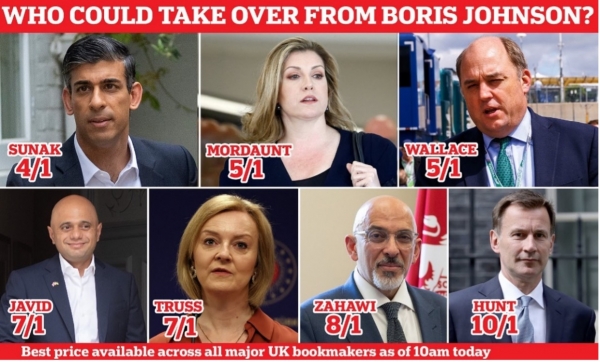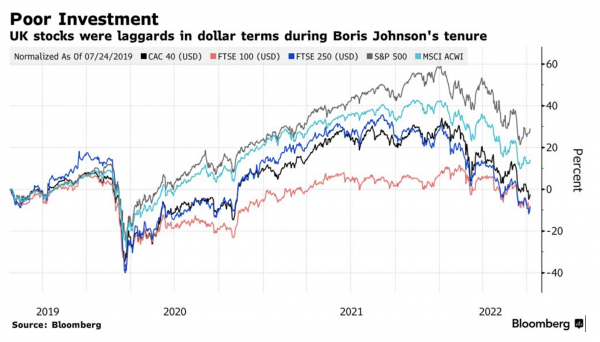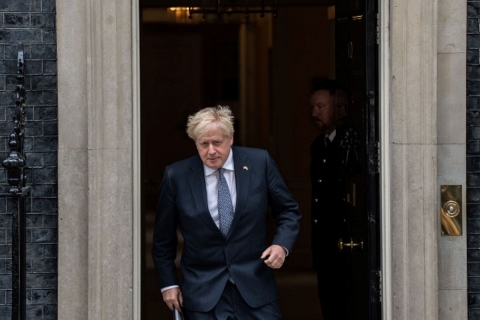The Prime Minister's departure coincides with a very complicated economic climate for the United Kingdom. The domestic economy has been affected by both the Covid crisis and Brexit. It is now facing a context of stagflation with an inflation rate (9.1% in May) at its highest in 40 years and a high risk of a "technical" recession in the second half of the year (two consecutive quarters of GDP contraction).
Boris Johnson's successor will therefore have a lot to do. They will, of course, have an important influence on the international policy agenda (especially Brexit) and the economic agenda (especially fiscal measures).
Although it is still unclear who will become Prime Minister, an improvement in relations between the European Union and the United Kingdom seems likely. Systematic opposition to EU proposals had become the hallmark of Boris Johnson.
The new prime minister - however eurosceptic he or she may be - will almost certainly be less dogmatic than Johnson about convergence with EU rules. In particular, many observers are hoping for more compromise on the Northern Ireland issue, which would ease tensions with the EU. On this last point, the degree of flexibility varies according to the candidates. The hard Brexit line represented by Liz Truss will offer less compromise, while Rishi Sunak or Sajid Javid will probably be more open to negotiation.
The arrival at 10 Downing Street of a more traditional member of the Conservative party than the quasi-populist Boris Johnson also suggests an economic stance much more in line with that of the party. First, the economic situation has changed dramatically between BoJo's election in 2019 and today. Indeed, with the threat of stagflation, the successor to the current Prime Minister will have much less flexibility than Boris Johnson had four years ago and will have to deal with the Treasury, the Bank of England and the economic lobbies. In addition, the new government should be more willing to accept the idea of a recession to help curb inflation. This course of action is easier to pursue with a newcomer, who will be able to blame the current poor economic situation on the outgoing government.
Changes in fiscal policy are certainly in order. But the different candidates have different approaches to this issue as well. Some candidates are in favour of providing additional assistance to households to cope with the rising cost of living. This could include a reduction in fuel taxes and VAT. Other candidates favour an early income tax cut, while some want to scrap the corporate tax increase (from 19 per cent to 25 per cent) scheduled for next year. The new chancellor, Nadhim Zahawi (who replaced Rishi Sunak, the apostle of fiscal discipline), has already stated his determination to do more to cut taxes. It is the extent of the cuts, their realization and their effects that remain to be determined. Among the candidates, Rishi Sunak and Sajid Javid favour fiscal discipline, while Liz Truss favours the line taken by Nadhim Zahawi, which is to increase the budget.
It should be noted that this possible loosening of fiscal policy could increase pressure on the Bank of England to continue monetary tightening.



